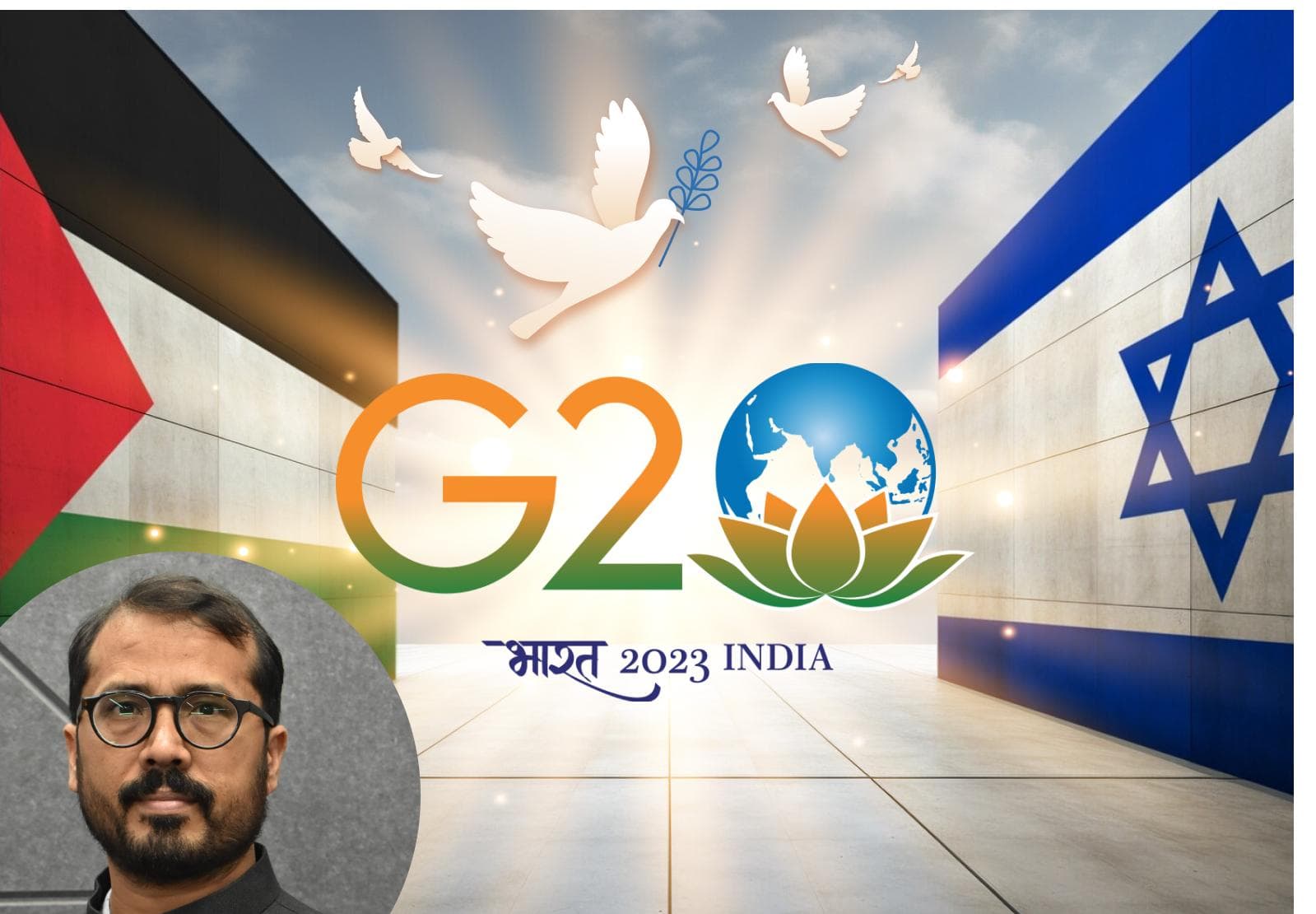A Silent Titan Reshapes Regional Harmony
Exploring India's evolving role as a mediator in West Asia, navigating the complexities of the Israel-Hamas conflict and shaping a new era of international diplomacy

In the wake of the recent Israel-Hamas conflict, it is imperative to understand and analyse the dynamics of this longstanding issue, particularly from the perspective of India as a rising global power. The conflict, marked by a significant escalation on October 7, when Hamas attacked Israeli cities, has drawn widespread condemnation, including from India, which has long grappled with the scourge of terrorism.
The Indian government's swift denunciation of the attacks as a terrorist strike aligns with its principled stance against terrorism in all forms. This position is rooted in India's own experiences with terrorism and underscores the need for a broader understanding of the conflict in West Asia. The nature of the conflict between Hamas and Israel is complex, involving numerous legal and political dimensions. Yet, the gravity of the October 7 attacks, which claimed the lives of over 1200 Israeli civilians, compelled India to categorize them as terrorist acts.
India’s stance is not just a mere reaction to a single event; it reflects a deeper commitment to finding a lasting solution to the Israeli-Palestinian conflict. The two-state solution, long advocated by India, represents a path toward sustainable peace, respecting the principles of international engagement and dialogue. India has consistently upheld this position in international forums like the United Nations.
The categorization of Hamas as a terrorist group by India, following the events of October 7, introduces a nuanced dimension to the discussion. While certain actions by Hamas can be condemned as acts of terror, it is crucial to distinguish between these actions and the broader political and ideological contexts within which Hamas operates. The Palestinian political landscape is deeply divided, with various internal and external actors influencing the discourse. India's approach, therefore, is one of engagement with all factions within Palestinian politics, including Hamas, the Palestinian Authority, and other groups. This strategy aligns with the broader goal of fostering dialogue and finding a sustainable solution to the conflict.
The future of Palestinian politics and India's evolving role in this complex scenario remain uncertain. However, India’s upcoming hosting of the virtual G-20 summit and the Global South conference presents significant opportunities to shape global discourse on conflict resolution, particularly in West Asia. These platforms could catalyze momentum toward supporting the two-state solution and other peace processes, thereby contributing to a cessation of hostilities in Gaza and the broader region.
As India continues to navigate its role in this intricate geopolitical landscape, it remains committed to upholding its principles of peaceful dialogue and supporting a just resolution to the Israeli-Palestinian conflict. The path ahead is fraught with challenges, but with sustained diplomatic efforts and international cooperation, there is hope for progress toward lasting peace in West Asia.
In the contemporary geopolitical landscape, particularly in West Asia, the role of emerging powers like India in mediating conflicts has become increasingly significant. The ongoing Israel-Hamas conflict is a prime example of a situation where India's growing global influence can play a crucial role in fostering peace and stability.
India's current position as a leader of the Global South and its historical role as a non-aligned country have provided it with a unique diplomatic advantage. This is reminiscent of the era when India supported Egypt under Colonel Jamal Abdul Nasser in its struggle against Israel. Today, India is positioned to leverage its collective leadership within the G-20, SCO, and BRICS to facilitate peace negotiations in the region. Prime Minister Narendra Modi's global recognition further bolsters India's diplomatic clout.
The intractable nature of the Arab-Israeli conflict has stumped various international organizations, including the United Nations, the European Union, the Arab League, and the OIC. The G-20's emergence as a significant economic grouping presents a novel opportunity for India to bring this issue to the forefront. India's high trust level among Arab nations and its balanced relationship with Israel position it uniquely to mediate in this conflict. However, this task is not without its challenges, especially considering the competition from American and European interests in the region.
India's approach has often been characterized by 'peace proxies,' exemplified by its humanitarian aid to Gaza, educational initiatives in the West Bank, and scholarships for Palestinian and Israeli students. These efforts demonstrate India's commitment to fostering peace and development in the region. The recent escalation in Gaza and the consequent rebuilding efforts will necessitate increased international collaboration, with India poised to play a significant role.
The large Indian diaspora in West Asia, primarily in the Gulf countries, also plays a part in India's diplomatic strategy. These expatriates, known for their apolitical stance and contributions to the regional economy, can function as peace builders, reinforcing India's diplomatic efforts.
The recent developments in the Israel-Hamas conflict demand a nuanced understanding and a responsible approach from international stakeholders. The two-state solution, although challenging, remains a viable path toward resolving the conflict. India's consistent support for this solution, coupled with its non-partisan diplomatic approach, could prove instrumental in navigating the complexities of this prolonged conflict.
In conclusion, while the path to peace in the Israel-Hamas conflict is fraught with challenges, India's unique position and diplomatic strategies offer a beacon of hope. It is a testament to the role emerging global powers can play in resolving long-standing geopolitical conflicts.

Dr. Omair Anas 🇹🇷
Deep Dive
De-escalation: Ever since the current Israel-Hamas crisis broke out, India has denounced violence and backed immediate de-escalation of hostilities.
G-20 Presidency: While taking the presidency of G-20 for the first time, India has tried to build a consensus to solve conflicts with consensus and peaceful means.
Prudent policy: In the highly complex diplomatic terrain of West Asia, India has strived to chart a careful route to maintain balance of relations.


































